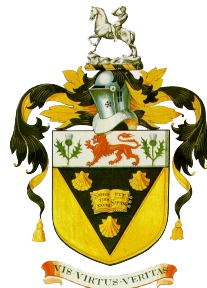
Rhodes University (RU or simply Rhodes) is a public research university located in Grahamstown in the Eastern Cape Province of South Africa, established in 1904. It is the province’s oldest university, and is one of the four universities in the province. It is the fifth or sixth oldest South African university in continuous operation, being preceded by the University of the Free State (1904),[3] University of Witwatersrand (1896), Stellenbosch University (1866) and the University of Cape Town (1829).[verification needed] Rhodes was founded in 1904 as Rhodes University College, named after Cecil Rhodes, through a grant from the Rhodes Trust. It became a constituent college of the University of South Africa in 1918 before becoming an independent university in 1951.
For more information and updates visit www.campusflava.com
The university has an enrolment of over 7,000 students, approximately 3,000 of whom live on campus in several residences located on campus while the remaining students (known as oppidans) take residence in digs (off-campus residences) or in their own homes in town.
Although a proposal to found a university in Grahamstown had been made as early as 1902, financial problems caused by the Frontier Wars in the Eastern Cape prevented the proposal from being implemented. In 1904 Leander Jamson issued £50 000 preferred stock to the university from the Rhodes Trust. With this funding Rhodes University College was founded by an act of parliament on 31 May 1904.
University education in the Eastern Cape began in the college departments of four schools: St. Andrew's College; Gill College, Somerset East; Graaff-Reinet College; and the Grey Institute in Port Elizabeth. The four St Andrew’s College professors, Arthur Matthews, George Cory, Stanley Kidd and G.F Dingemans became founding professors of Rhodes University College.
Halls of Residence
Allan Webb Hall
Courtenay-Latimer Hall
Desmond Tutu
Drostdy Hall
Founders Hall
Hobson Hall
Jan Smuts Hall
Kimberley Hall East
Kimberley Hall West
Lilian Ngoyi Hall
Nelson Mandela Hall
St Mary Hall
At the beginning of 1905, Rhodes moved from cramped quarters at St Andrew’s to the Drostdy building, which it bought from the British Government. Rhodes became a constituent college of the new University of South Africa in 1918 and it continued to expand in size. When the future of the University of South Africa came under review in 1947, Rhodes opted to become an independent university.
Rhodes University was inaugurated on 10 March 1951. Sir Basil Schonland, son of Selmar Schonland, became the first Chancellor of his alma mater, and Dr Thomas Alty the first Vice-Chancellor. In terms of the Rhodes University Private Act, the University College of Fort Hare was affiliated to Rhodes University. This mutually beneficial arrangement continued until the apartheid government decided to disaffiliate Fort Hare from Rhodes. The Rhodes Senate and Council objected strongly to this, and to the Separate University Education Bill, which they condemned as interference with academic freedom. However, the two bills were passed, and Fort Hare’s affiliation to Rhodes came to an end in 1959.
James Hyslop succeeded Alty in 1963. In 1971 Rhodes negotiated to purchase the closed Community of the Resurrection Training College buildings and grounds and a number of adjacent buildings, facilitating further expansion.
The old part of the Rhodes University campus -- viewed across the Great Fields towards the Student Union building and the science buildings.
Kimberley Hall is currently one of nine halls on campus.
The new Eden Grove building at Rhodes University.
Campus
During 2008 work began on construction of a new library building at a cost of R85 million, one of the largest infrastructure projects undertaken by the university, and was completed in 2010.
Organization and administration
[icon] This section requires expansion. (May 2011)
Faculties and Schools
Rhodes has six faculties, listed below:
Humanities (1952)
Commerce
Law
Science
Education
Pharmacy
The six faculties are further subdivided into 30 academic departments, of which 11 form part of the humanities faculty. The humanities faculty, being the largest in the university, consists of 40% of the student intake of undergraduate and postgraduate studies, enrolling 2669 students as of 2009.
Law Clinic
Rhodes University operates a Law Clinic, which operates as a firm of attorneys providing training to law students and free legal services for indigent people. The Law Clinic operates from two offices, one in Grahamstown and one in Queenstown. The Law Clinic came to national attention in July 2013 when it represented 15 members of Nelson Mandela's family in their litigation against Mandla Mandela (Nelson Mandela's grandson) concerning the location of family grave sites.
Academics
Rhodes is a small, highly residential university. For most undergraduates, first and second years of study are done while living in campus residences.
Rhodes' academic program operates on a semester calendar, beginning in early-February to early-June, and the second semester beginning in late-July and ending late-November.
Undergraduate tuition for the first year of study in 2011 towards a bachelor of arts and bachelor of science degree was R26,590 and R27,720, respectively, and the cost of board was between R35,700 and R37,600.

No comments:
Post a Comment